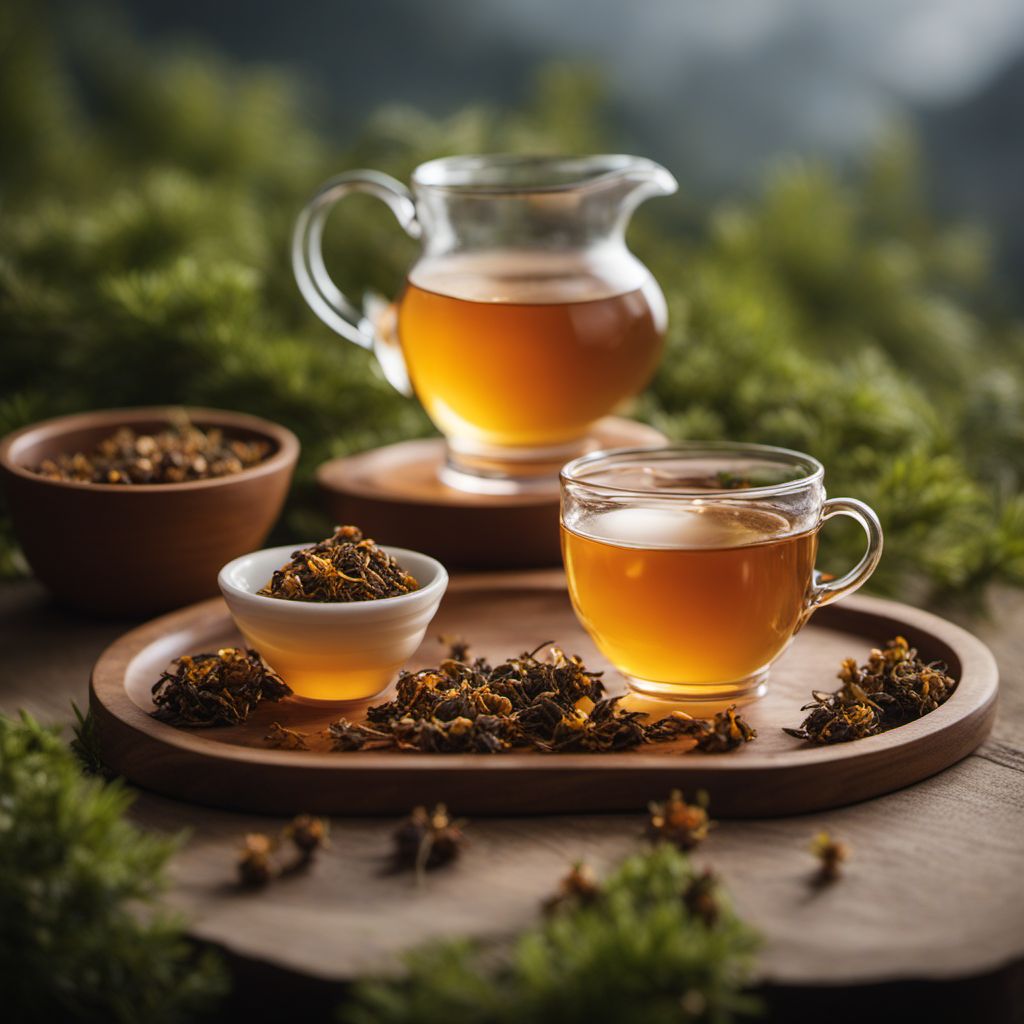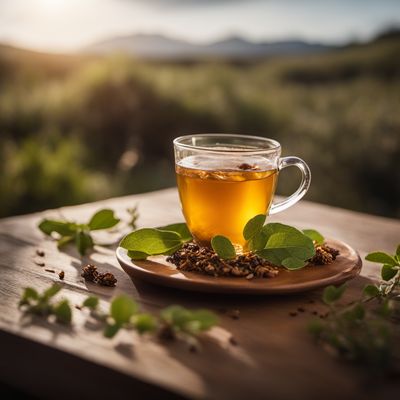
Ingredient
Mountain tea
Nature's Herbal Infusion
Mountain tea is a fragrant and invigorating herbal infusion with a slightly bitter and earthy taste. It is often enjoyed hot or cold and can be sweetened with honey or other natural sweeteners. The tea is known for its calming and digestive benefits, making it a popular choice for relaxation and wellness.
Origins and history
Mountain tea has a long history dating back to ancient civilizations, where it was used for its medicinal properties. It has been traditionally consumed in regions with mountainous terrain, such as Greece, Turkey, and the Balkans. The plants used to make mountain tea belong to the Sideritis genus and are known for their resilience in harsh climates.
Nutritional information
Mountain tea is naturally caffeine-free and low in calories, making it a healthy beverage choice. It contains various beneficial compounds, including antioxidants and polyphenols, which contribute to its potential health benefits. The tea is also known for its anti-inflammatory and antimicrobial properties.
Allergens
Mountain tea is generally considered safe for consumption, but individuals with allergies to plants in the Lamiaceae family, such as mint or sage, should exercise caution. It is advisable to consult with a healthcare professional if there are any concerns or known allergies.
How to select
When selecting mountain tea, look for dried leaves and flowers that are intact and free from mold or discoloration. The tea should have a strong aroma, indicating its freshness and quality. Consider purchasing from reputable sources or specialty tea shops to ensure authenticity and optimal flavor.
Storage recommendations
To preserve the flavor and quality of mountain tea, store it in airtight containers away from direct sunlight and moisture. Dried tea leaves and flowers can be stored for an extended period, while brewed tea should be consumed within a few days for the best taste.
How to produce
Mountain tea can be cultivated in home gardens or outdoor pots, provided the plants receive adequate sunlight and well-drained soil. The plants are known for their resilience and ability to thrive in mountainous regions, making them suitable for cultivation in various climates.
Preparation tips
Mountain tea can be prepared by steeping dried leaves and flowers in hot water for several minutes. The brewing time can be adjusted to achieve the desired strength of flavor. The tea can be enjoyed plain or sweetened with honey or lemon. It is often served as a comforting beverage or as a natural remedy for various ailments.
Culinary uses
Mountain tea is commonly used in traditional Greek, Turkish, and Balkan cuisines. It is enjoyed as a hot or cold beverage, often accompanied by traditional pastries or desserts. Mountain tea is also used in traditional medicine practices for its potential health benefits.
Availability
Mountain tea is primarily cultivated and consumed in mountainous regions, such as Greece, Turkey, and the Balkans. It can also be found in specialty tea shops or online retailers catering to herbal infusions and traditional remedies.


